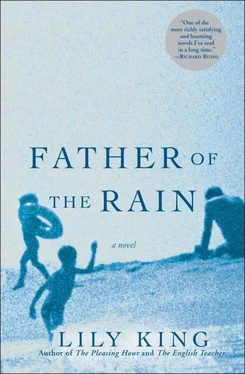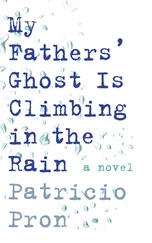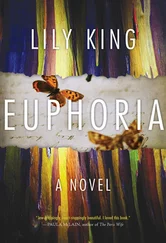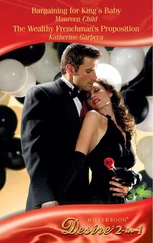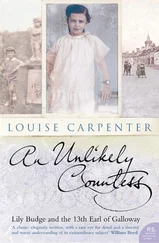My retort constructs itself swiftly. I’ve got a lot of ammo now on this question, yet none of my knowledge will help me win a fight with my father. He will cling to his position even when all reason fails him; he will cling to it as if it’s his life and not his opinion that is in peril. He will get vicious and personal, and every negative thing he ever felt about me will pour out of his mouth. Ridding my father of his racist and anti-Semitic rhetoric would take a long time. It would be a whole reeducation. His prejudices are a stew of self-hatred, ignorance, and fear. If those feelings could be rooted out and examined somehow, maybe he wouldn’t have to drink so much to squelch the pain of them.
“You don’t have much of an answer to that, do you?”
Would Jonathan be horrified at my cowardice? Would he understand that to argue would be futile, would wound me deeply and do nothing to change him?
“I’m going to get dinner started.” I can hear my mother in my tone with him. “Do you want me to call you when I’m ready to make the hollandaise?”
“The what?” Then he remembers. “Okay. Sure.”
But when it’s time, he slouches against the counter with his hands in his pockets, staring but unseeing as I whisk the egg yolks in a saucepan and add cubes of butter, one at a time.
“It’s so easy, Dad. The only trick is to get the flame as low as possible and keep stirring. It’ll curdle if it gets too hot. Here, you take the whisk.” He takes it and, in a fairly good imitation of me, flicks the wire bulb through the thickening sauce. Hope swells in my chest. I have this idea that if he can make his own hollandaise he’ll be okay. And if he can learn to make both hollandaise and wash his clothes, he won’t need a wife at all.
At the table, A-1 sauce slathered over his rib eye, hollandaise over his asparagus, he is grateful. And very drunk. “You’re a goddamn good cook, you know that?”
I sleep in Elyse’s room, my old room. The rug is green, not yellow, the walls stripped of the daisy paper and replaced by a blue sponge wash. Out the windows are the same trees, though. Pine, beech, oak. One for each window. I get into bed and shut off the light. All my books are in the car. I have nothing to read to make me sleepy.
“Who we got here?” my father would say every time he came to say good night to me in this room. He’d yank Piglet up by the ear.
“No, not Piglet,” I’d giggle.
He’d wind up and hit Piglet in the face with his fist. “Pow!” he’d say. “Right in the kisser.” Piglet would go flying. Then he’d find all the rest of them scattered at the end of my bed and on the rocking chair and, one by one, speak kindly to them, wait for my false protests, then punch them across the room. I’d laugh and laugh.
In the morning I stand in the middle of the bathroom for a long time. It was here at the sink that my mother told me about her plan to leave my father. Eighteen years ago last week. I was wearing a white sleeveless nightgown. She was scared. I can see that now. Her lips were the color of her skin. Her eyes were filled, the brown trembling. She stood right there at the sink, holding her toothbrush, smelling the way she did in the morning, slightly sour. And now she is dead. Has been dead for years, though it doesn’t seem that way to me. It seems like she is just off with Paul somewhere. In all my dreams she is away, just about to return. I am often on the way to the airport to pick her up, or on my way to Water Street to clean before she gets back, neither of which I ever did in real life.
Paul writes regularly, calls on my birthday, asks me to visit. I write back sporadically, rarely remember his birthday on time, and never visit when I come to Massachusetts to visit my father. I think I will, and then I don’t. I wonder if he’s on the Cape right now. He spends as much time as he can there, he wrote in his last letter. He and my mother rented a little house in Truro every summer, and last fall the owner sold it to him. The letter was filled with exclamation points, which was not his style, so I knew how excited he was about it.
Now I get back into Elyse’s bed and wonder if I ever wrote back to congratulate him. I have no memory of it. It sets off a whole pageant in my mind of people I’ve let down or underappreciated. An old feeling, a weightless unease, creeps into my limbs. I need to shut my eyes and sleep it off, but I hear water rushing through the pipes for my father’s shower. Morning is always the best time to be with him.
Today, though, he is sullen when he comes down, making his coffee without his usual songs or whistling, calling the dogs sharply to their bowls, opening the sports page and cursing some Red Sox player I’ve never heard of. He’s even angry at his own foot, which he slips out of his moccasin twice to scratch. I notice he has a hole in the toe of his sock. It’s unlike my father to wear anything torn.
“Look at that big toe poking out.”
“I don’t have one decent goddamn matching pair of socks.”
“Well, let’s get you some. Today.”
“Really?” It’s as if I’ve suggested cotton candy to a six-year-old.
“Sure. Is Piper’s still around?”
“It sure is. I could use another pair of pants, too.”
Maybelle bounces at the screen door. “Oh, I sees you,” he says brightly, lovingly. “Here I am.”
And there is Piper’s, right where it’s always been on the first floor of an old house with a big veranda. Through the window I can see the madras dinner jackets, the white canvas golf hats, and the belts with sailboats or trout or tennis racquets on them. I cringe at the sight of it all. But to my father there is nothing ridiculous and foppish about this style of dress, nothing fetishistic about having symbols of wealth, little ducks or martinis, sewn all over your pants. It is all he’s ever known. This is what his whole world wears.
He pulls open the door of the shop and then stands aside to let me pass. But in the equally insulated world I have been in, men do not hold doors for women and, if they do, if they have just arrived from Pluto, women do not walk through them. I want to simply walk through the door he holds for me. Our outing has reversed his mood. I have less than twenty-four hours with him. The socks and pants he needs are only a few yards away and the smell of the store comes rushing at me, the sweet smell of new cotton clothes that brought me so much pleasure as a child. But I cannot do it.
I gesture playfully for him to go through first. He will not.
“C’mon, Dad. You’re the one with the hole in your toe.”
He laughs a disgusted laugh. “I am not going through a door held by a girl .”
“Why not?”
He shakes his head. “Is this the kind of crap you get at your fancy schools? You learn to be rude to every person who shows the slightest bit of upbringing?”
I feel the fatigue of trying to communicate with him. Twenty more hours. I go through the goddamn door.
“Hello,” a woman says to us from the back, where she’s folding cable-knit sweaters. I can only see her dimly but I recognize the voice. My father veers right, into the men’s section.
“Didn’t I go to school with her?” I whisper.
“Her? No. She’s twice your age.”
“I think it’s Brenda McPheney.”
“Oh, Christ, that’s not Brenda McPheney. Brenda McPheney was a skinny knockout of a girl.”
“She had anorexia, that’s why she was so skinny. She almost died senior year.”
“Well, she looked a hell of a lot better with anorexia.” He points to something over my shoulder. “Look at that. Isn’t that great?” On a shelf was a shiny ceramic statue of a black Lab with supplicating eyes and a real leash hanging out of its mouth. “I love that.” And he did. He stared at it like someone else might stare at a Van Gogh.
Читать дальше
